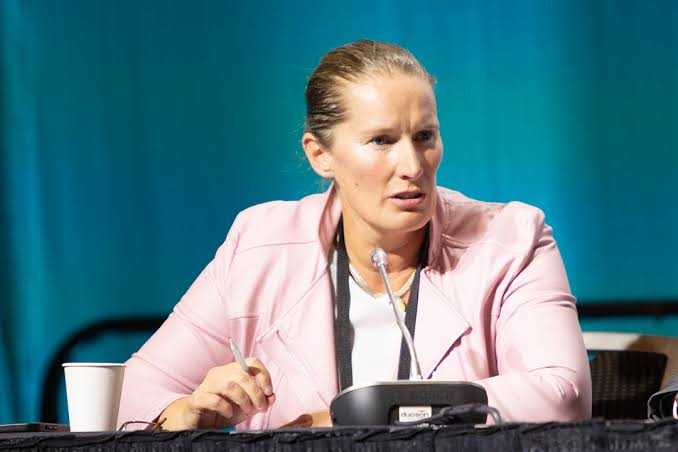You are in Riyadh for the COP16 conference. Can you tell us your mandate, and what you have been doing in terms of tackling climate change?
The mandate of the World Bank is to help countries and communities end poverty and live a good life. But climate change, desertification, land degradation and drought make our job harder, undermining the impact we should have made. We do a lot of work on drought, from early warning systems to help countries and communities identify where drought is going to happen and prevent it, to land restoration. We have a new platform called the Global Challenge Programme on Forest. It is directed towards using forests for development, mitigating climate, and protecting biodiversity (GCP-F). These kinds of platforms help us to use our convening strength to bring development partners to the table with countries in so that they part of the discussions from the start.
They can present their needs and help us understand them. By so doing we forestall the duplication of investments, and properly provide technical assistance.
Beyond capital, we also bring institutional capacity to bear. We are bringing about 100 billion dollars a year, we need to make sure that these investments are directed towards impact families who are struggling because of the effects of climate change, loss of biodiversity, pollution, land degradation and drought.
They should have access to capital so that they can build their own paths out of poverty. Nobody wants handouts, they want a hand up.
It is all about empowering the poorest communities in poor countries by providing access to the capital, good ideas and skills set to build sustainable livelihoods.
At the ministerial briefing, you spoke about repurposing subsidies, fertilizers and the need to avoid such a short-term simplistic and dangerous approach to the assistance. Can you tell us more about the dangers of fertilizers as subsidies?
One of our concerns in the World Bank is, most countries particularly in sub-Saharan Africa is in the throes of both debt crises and fiscal crises. There is simply too much money flowing into debt repayment and too little money flowing into education and health and every other thing. They need to combat drought and desertification. One thing that every country in the world is spending money on is subsidies. Energy, agriculture and forestry subsidies gulp about 1.5 trillion dollars annually. Agricultural subsidies alone take up about 650 billion dollars a year. These funds should be directed at accelerating the action against drought but actually its use is accelerating land degradation. This is because too much for those subsidies are linked to food production which largely focuses on fertilizers.
On face value it looks good but there is excessive fertilizer use these days, for every 10 per cent increase paid for fertilizers, there is a corresponding negligible increase in food production. The lands are already saturated with fertilizers leading to loss of topsoil.
The fertilizer flows into water bodies and it is also aerosolized. The expected increase in food production is not achieved and it gets people sick. The farming families breathe in the nitrous oxide, and they drink water that is polluted. Simply put, for every 10 per cent increase in fertilizer use there is a four percent increase in ailments in people exposed to it through farming.
Can you name some illnesses that are directly linked to the use of fertilizers?
It is mostly perspiratory conditions. This occurs when there is too much nitrogen oxide from over application of fertilizers it gets aerosolized and breathed in. mostly application of fertilizers to soil is the job of kids and women so they are the most exposed to the hazards.
It is toxic and can cause cardio-vascular diseases.
What will you suggest as a replacement for these practices?
It is about the repurposing of subsidies, we still want the farming families to have these funds. It is critical and we don’t want it taken away from them. But instead of fertilizers can they use it to plant trees on their land, because we know that more trees are directly connected to more productivity on the land, this is because there is more water management on the land.
Can we use it for bio fertilizer, bio pesticide?
…So that there is increase in food production which is why these subsidies were actually put in place. We will then achieve our goals without the public health emergency and waste of money.
You spoke on unifying purpose for greater impact, what should we expect from your organization going forward?
We have focused very much on increasing our ambition and that is very important, we will also be looking at localizing these ambitions at the country’s level. We must make sure that instead of talking in global aggregates, we get to the country and the landscape at the national level.
The UN agencies and development partners should be seating together with the communities and actually come up the solutions and co-create them. Localizing ambition leads to ownership and sustainability.









